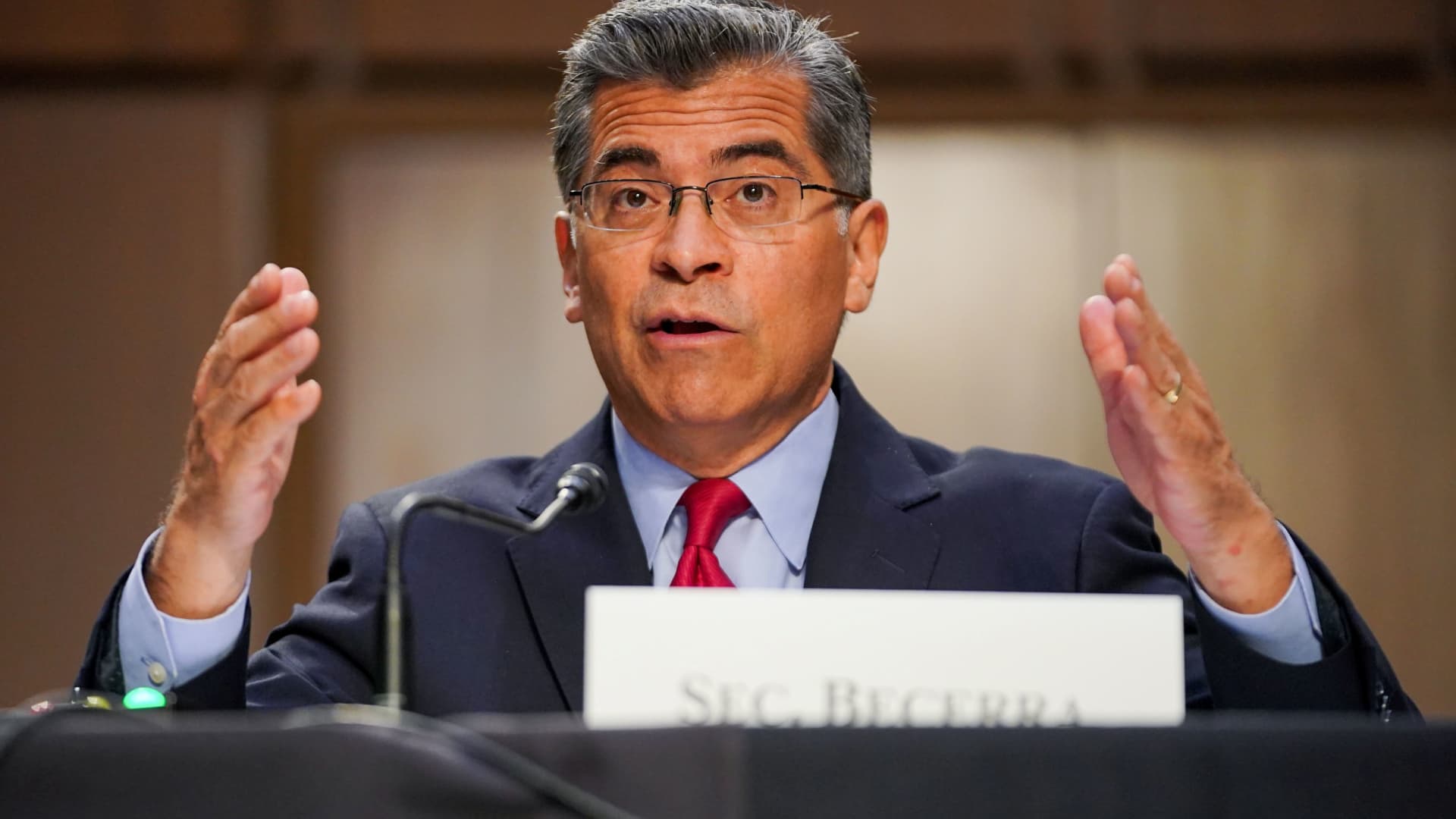The U.S. Covid public health emergency will remain in place past Jan. 11 after the federal government did not notify states or health-care provides on Friday of any intent to lift the declaration.
Health and Human Services Secretary Secretary Xavier Becerra has promised to give stakeholders 60 days notice before lifting the emergency declaration so they can prepare for a return to normal operations. In October, HHS extended the public health emergency until Jan. 11.
HHS did not provide a 60-day notice on Friday, which was the deadline to alert states and health-care providers if the federal government planned to lift the declaration on Jan. 11, according to a Health and Human Services spokesperson. Since HHS did not provide notification, the emergency will remain in place for at least another 60 days until mid January.
Public health officials are expecting another Covid surge this winter as people gather more indoors where the virus spreads easier. The future also remains uncertain as more immune evasive omicron subvariants become dominant in the U.S.
How the U.S. fares against Covid this fall and winter will help determine whether the emergency needs to be renewed again moving forward, Becerra told reporters in October.
The public health emergency, first declared in January 2020 and renewed every 90 days since, has had a vast impact on the U.S. health-care system. The declaration has dramatically expanded public health insurance through Medicaid and the Children’s Health Insurance Program. Enrollment in these programs increased 26% during the pandemic to a record of more than 89 million people as of June.
HHS has estimated that as many as 15 million people could lose Medicaid or CHIP once the programs return to normal operations.
The emergency declaration has also given hospitals and other health-care providers more flexibility in how they operate.
Correction: HHS clarified that public health emergency remains in place for at least another 60 days, which is mid January.
